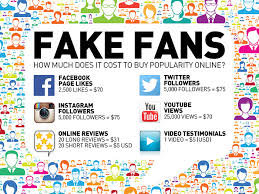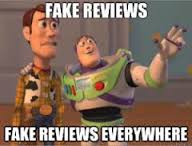 Q – As an early adapter and technical Millennial, I like to think of myself as tuned in. But travel on the internet seems to be a blur of contradictory advice and I keep getting the feeling that I am being set up and fed large amounts of really crappy, biased information. This seems particularly true on travel so-called “review” sites. I just heard that 60% of travelers my age will check a review before deciding to travel anywhere. Is there anyway to even know of the person writing the review has even been to the hotel or destination being described?
Q – As an early adapter and technical Millennial, I like to think of myself as tuned in. But travel on the internet seems to be a blur of contradictory advice and I keep getting the feeling that I am being set up and fed large amounts of really crappy, biased information. This seems particularly true on travel so-called “review” sites. I just heard that 60% of travelers my age will check a review before deciding to travel anywhere. Is there anyway to even know of the person writing the review has even been to the hotel or destination being described?
I know you will probably say that I should use a consultant – but I don’t have time for that process and you’re not going to change my mind about taking full advantage of the high-powered computer in my back pocket. Quite frankly, I don’t see how you can work in a business that is so based on distortion and lies.
 A – No worries – we won’t try to talk you into using a consultant. There are “Travel Do-It-Yourselfers” and you are likely one of them. Your point is well taken and there is no easy solution as you know. We try to follow this subject closely and the percentage of fake reviews seems to be increasing rather rapidly. There are any number of businesses that curate favorable reviews for a travel entity like a hotel or airline and they also use buzz marketing techniques to do as much damage to the competition as is legally possible. We believe very little we read in the way of reviews on the internet. In fact, if we challenged you to find a truly objective review of the Townhouse at the Galleria in Milan, you would, we will bet, be unable to find one. It exists but only in the form of an actual hotel inspection report from trained inspectors – reports that are not available online.
A – No worries – we won’t try to talk you into using a consultant. There are “Travel Do-It-Yourselfers” and you are likely one of them. Your point is well taken and there is no easy solution as you know. We try to follow this subject closely and the percentage of fake reviews seems to be increasing rather rapidly. There are any number of businesses that curate favorable reviews for a travel entity like a hotel or airline and they also use buzz marketing techniques to do as much damage to the competition as is legally possible. We believe very little we read in the way of reviews on the internet. In fact, if we challenged you to find a truly objective review of the Townhouse at the Galleria in Milan, you would, we will bet, be unable to find one. It exists but only in the form of an actual hotel inspection report from trained inspectors – reports that are not available online.
 You are absolutely correct in your assumption that you do not have to have been a guest at a hotel to review it on major sites like Yelp and TripAdvisor. Most travel marketers now have thirty or more e-mail alias addresses which they use to post reviews in support of their benefactors. There is one ray of hope in all of this. Cornell University has developed an app called “Review Skeptic” that it claims can detect a fake review with 90% accuracy. Cornell has designed key word algorithms that react to submitted review copy with a likely “deceptive” or “truthful” recommendation.The content of the algorithms is, of course, confidential, but it depends largely on the kind of emotion and language someone who is deceptive might use.
You are absolutely correct in your assumption that you do not have to have been a guest at a hotel to review it on major sites like Yelp and TripAdvisor. Most travel marketers now have thirty or more e-mail alias addresses which they use to post reviews in support of their benefactors. There is one ray of hope in all of this. Cornell University has developed an app called “Review Skeptic” that it claims can detect a fake review with 90% accuracy. Cornell has designed key word algorithms that react to submitted review copy with a likely “deceptive” or “truthful” recommendation.The content of the algorithms is, of course, confidential, but it depends largely on the kind of emotion and language someone who is deceptive might use.
So we’re finished with our response and you will notice that we did not, once, encourage you to use a travel consultant. Of course, you will be paying to use one as virtually all travel product pricing includes agent fees, but doing it all yourself is likely worth it. That way, if you screw up, you can sue yourself.
